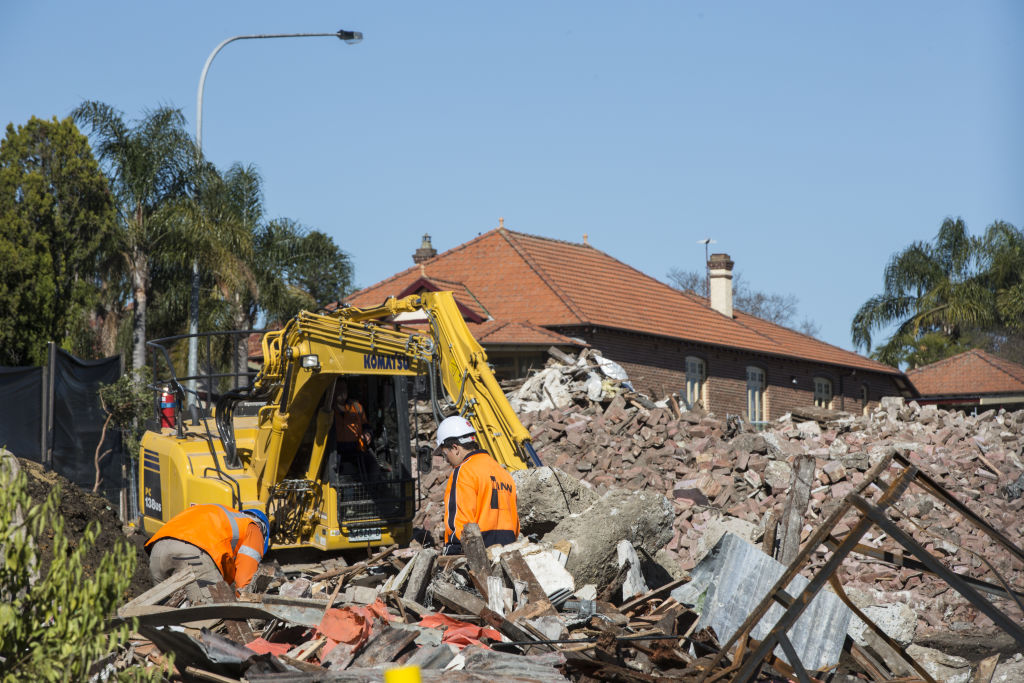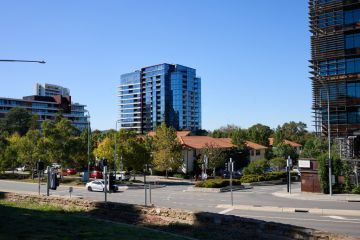Compulsory land acquisition in New South Wales: How it works and how to get fair compensation for your home

An extraordinary number of infrastructure projects are planned or underway across NSW, many of which will require the compulsory acquisition of homes and businesses in the paths of motorways and tunnels.
Compulsory land acquisitions can be emotionally taxing for affected home and business owners. In recent years more than 400 homes and businesses were acquired for the construction of the WestConnex motorway in Sydney, with some residents claiming compensation was inadequate.
With the Western Harbour Tunnel, Beaches Link and the final stage of the F6 on the horizon, compulsory acquisitions are expected to continue across Sydney.
While some compulsory acquisition cases do end up in court, the overwhelming majority of cases are transacted in what’s known as the “pre-acquisition process”, where home owners accept the offer of compensation made by the acquiring authority.
“The majority of cases get negotiated before the compulsory acquisition phase kicks in,” says Hasti Kalarostaghi, a partner at Hunt & Hunt Lawyers recognised for her legal expertise in valuation, compulsory acquisition of land and property rights.
“Only about 10 per cent go through the compulsory acquisition process and of those maybe 50 per cent might lodge an application with the Land and Environment Court, but only one or two cases will then go through to final judgment in court.”
How can I check if the home I’m interested in buying is listed for possible acquisition?
A spokesperson for the NSW Department of Finance, Services & Innovation says if an acquiring agency has a plan in the future to acquire land in an area, it can be found in the Central Register of Restrictions, a centralised database recording potential and actual use of land by government agencies and utilities.
If the compulsory acquisition has proceeded to the point of issuing a proposed acquisition notice, that notice will be recorded on the title of the land, so house hunters can do a title search at the Land Registry Services.
Digby Dunn, a director at Stacks Law Firm, says it’s also useful to consult a competent lawyer with local knowledge in the area you’re buying into because they’re likely to have “their ear to the ground”.
What are my options if I find out my home is going to be acquired?
It doesn’t matter if you’ve just put the final lick of paint on a $200,000 renovation or you’re living in a tent, nor does it matter if you’re a 95-year-old widow or a family of 10.
“If the government authority wishes to acquire your house, they will acquire it,” says Dan Minogue, a partner at Rennick & Gaynor Solicitors, a company specialising in compulsory acquisition.
“We’ve had a number of experiences where there has been a flaw of process, but it just means the process will start again, so the only thing you’re buying is time.”
You may find out in person from a “door-knocker” or you may get a phone call, each followed by a letter. The important next step is to get legal advice on how to optimise your compensation from the acquisition.
“If someone turns up and says they’re taking your home away from you, it’s a big thing,” says Kalarostaghi. “It’s your biggest asset, it’s emotional, it might be your family home and your only right is how much money you would end up with at the end of the day.”
Dunn says legal costs that are “reasonably incurred” are paid for by the government, so home owners don’t stand to lose by engaging an expert.
“They’re going to give you an idea of what your rights are, where you stand and they’ll engage a specialist valuer and get advice as to whether the offer being made is a good offer or needs to be challenged,” he says.
How is the value of my home calculated?
1. Market value – The biggest component of the purchase offer is the market value of the land, which should equate to the price that would be paid for your home on the open market.
2. Severance – Added to this are losses due to severance, when the government purchases a portion of your land which subsequently devalues the remaining land, a situation more common in rural locations.
“With rural properties, Roads and Maritime Services might take a corridor through your property,” says Dunn. “Partial acquisitions tend to be more complex and this is where an experienced lawyer and valuer come in. They will look at how people are going to be able to use their property with the new infrastructure in the front or back yard or cutting the property in half.”
3. Relocation costs – The government will generally pay your relocation costs which might include legal fees, valuation fees and mortgage discharge fees.
4. Stamp duty – The government will also pay the stamp duty on a new home, provided that home is of a similar value to the one you are selling. “You can’t say I’m being forced out of my $1 million home and I want to buy a $5 million home and you can pay my stamp duty,” says Dunn.
It’s also worth noting NSW legislation treats investment properties differently. An acquiring authority is not obligated to pay the cost of stamp duty incurred to buy a new investment property. In contrast, the Australian Tax Office does not expect land owners to pay capital gains tax on the sale of an investment property, recognising that land acquired by compulsory process cannot be regarded as an ordinary transaction.
5. Solatium – The final component of the purchase offer is an amount for “intangibles”, previously known as solatium. This fee takes into account the length of time you have occupied the home or land, your age and circumstances, and the inconvenience of being removed from your home. In NSW this figure is capped at $75,000. “The general idea is that you’re not going to be out of pocket with this move, and we’ll pay $75,000 for the inconvenience,” says Kalarostaghi.
Establishing a “fair” purchase price can be fraught with difficulty. Dunn says rapidly escalating prices in Sydney a few years ago during Westconnex acquisitions caused headaches for the government, particularly when home owners found they couldn’t buy a replacement home in the same area with the amount of compensation they received.
On the other hand, if a land owner knew when they originally purchased their land that it was slated for acquisition, the price you paid is assumed to reflect that fact.
However Dunn says the counter argument is that until an acquisition actually takes place, a land owner doesn’t know for certain if it will go ahead, therefore valuation has to be done on the date of acquisition.
What if I don’t agree with the valuation?
Dunn says that in NSW the acquiring authority is encouraged to purchase the property by agreement and must spend a period of at least six months “to make a bona fide attempt to come to an agreement”.
According to the Office of the Valuer General, when a property is acquired by agreement, the acquiring authority and the land owner agree on the amount of compensation, and the Valuer General is not involved. The majority of land acquisitions by government are made by negotiation and agreement within the six-month time frame.
If agreement can’t be reached, the Governor of NSW can approve the compulsory acquisition of the land – this is when a proposed acquisition notice will be issued and the Valuer General will become involved in the acquisition process.
Negotiations can continue throughout this stage, however if agreement still isn’t reached 90 days after the notice is issued, the acquiring authority publishes an acquisition notice in the NSW Government Gazette and ownership of the land transfers to the government. The Valuer General will then determine the amount of compensation to be offered.
If the land owner is still not satisfied they can lodge an objection with the Land and Environment Court.
Kalarostaghi says court cases – and wins for land owners – are rare.
“The majority of cases that go to court settle for essentially what the Valuer General has determined,” she says. “I had a private client whose land was being acquired by council and it took four years to get a settlement. They did get a better payout, but I don’t know if it was worth four years of distress.”
On the flip side, Kalarostaghi knows of a recent case where the amount of compensation determined by the Court was less than the offer made by Blacktown City Council during the hearing and the landowner was ordered to pay some of the council’s costs.
Continued infrastructure development means NSW residents can expect land acquisitions to remain a fixture in both urban and rural areas. The legislation has improved over time, but it’s a complex field and one unlikely to win favour with home and land owners.
“The government wants to balance the playing field, they want people to get proper advice and fair value,” says Kalarostaghi. “There’s a lot of opportunity along the way to sit down and negotiate, but because you can’t take the human emotion out of the equation, it will never be seen to be fair.”
For more information, see the NSW government’s property acquisition guide.
We recommend
We thought you might like
States
Capital Cities
Capital Cities - Rentals
Popular Areas
Allhomes
More







